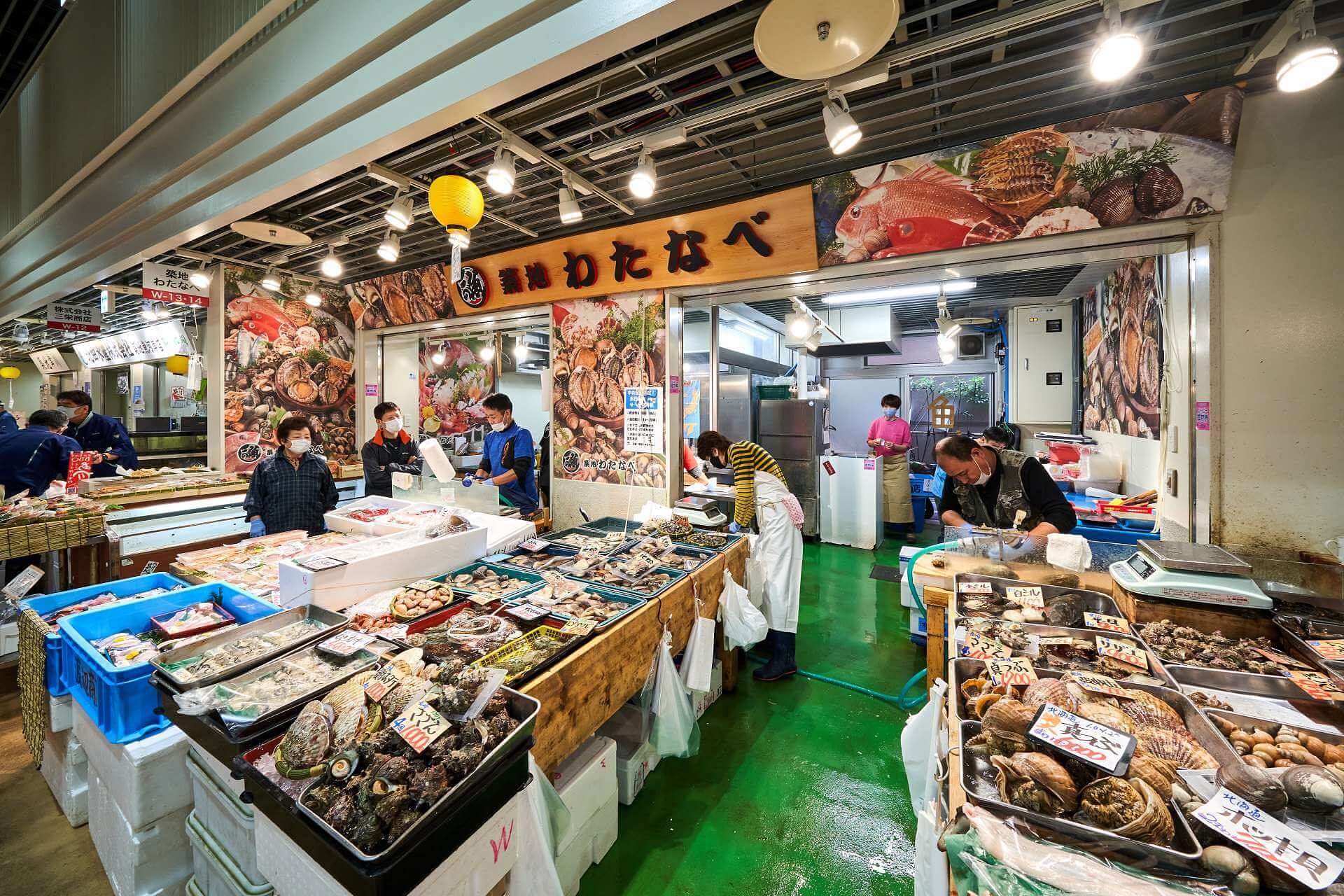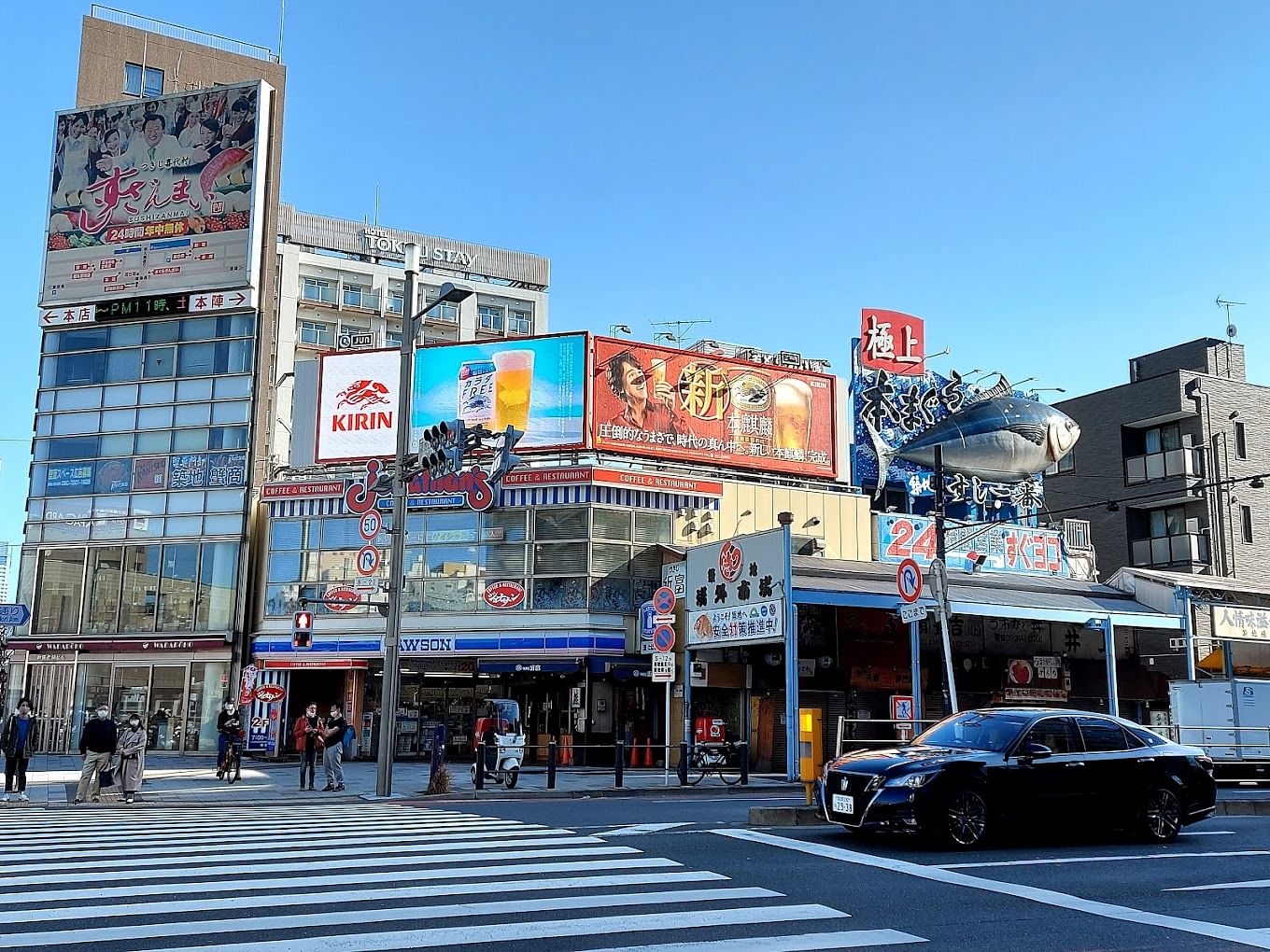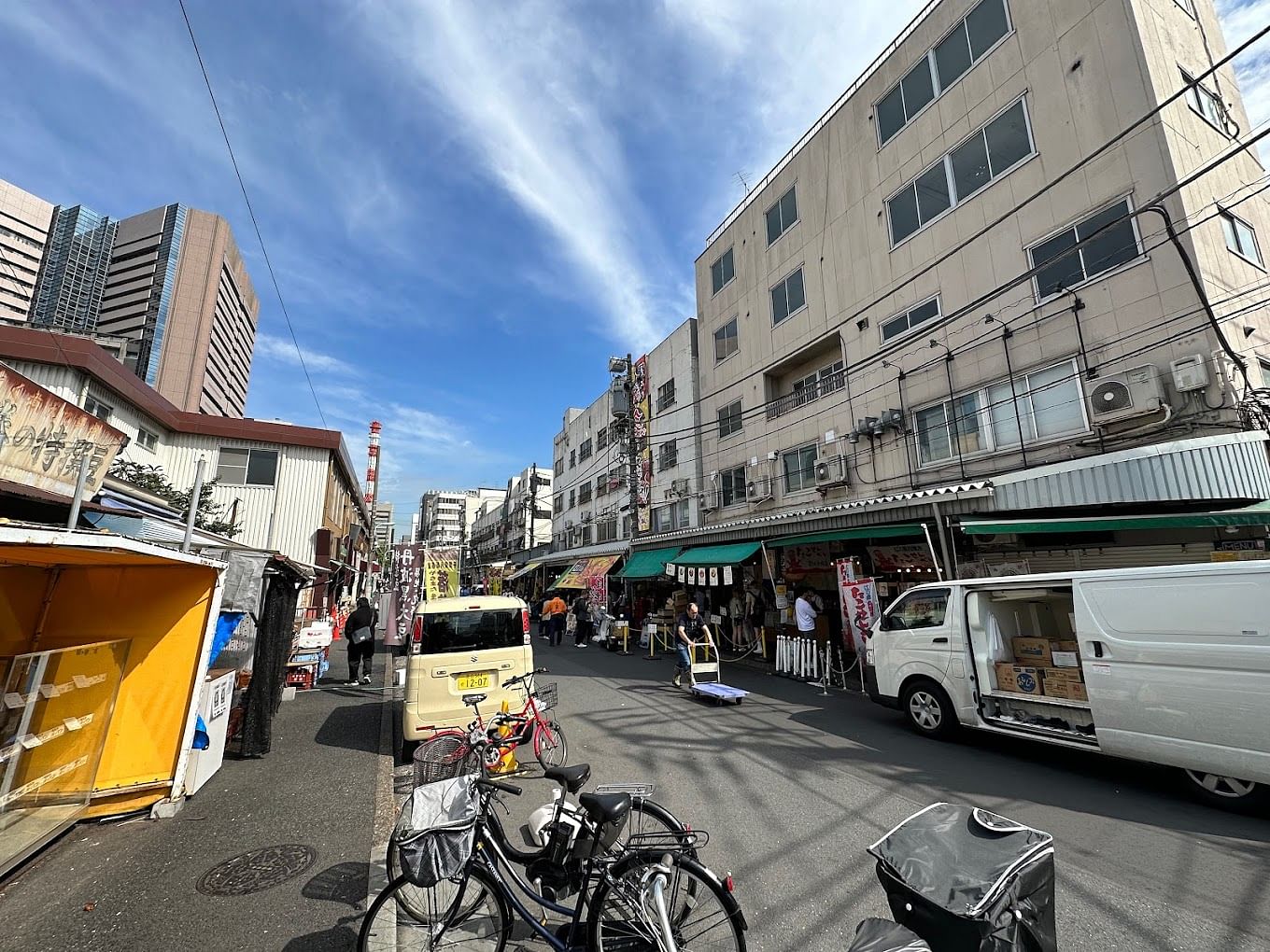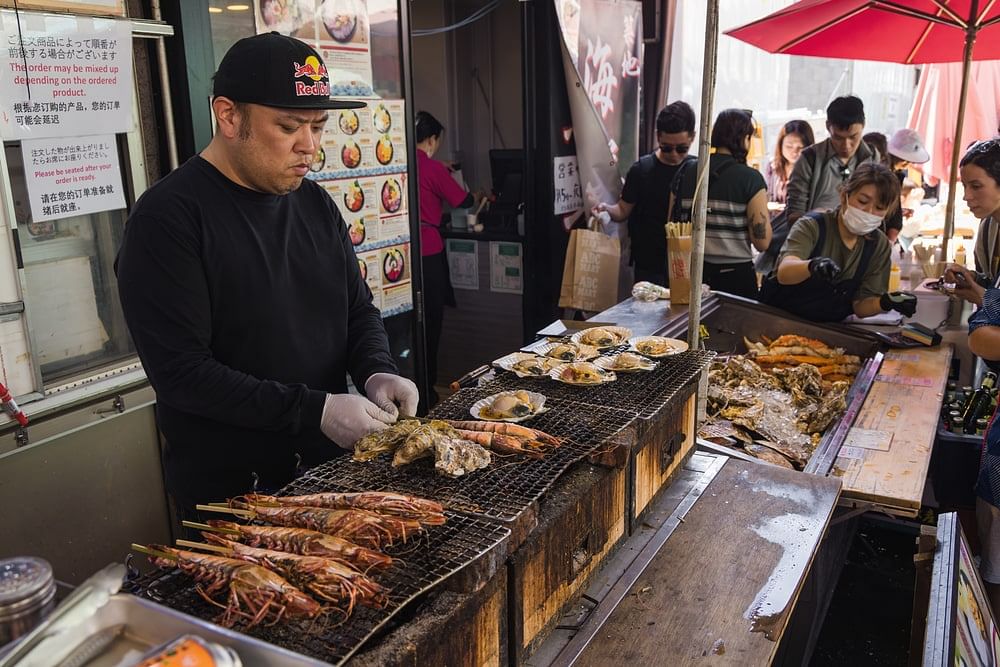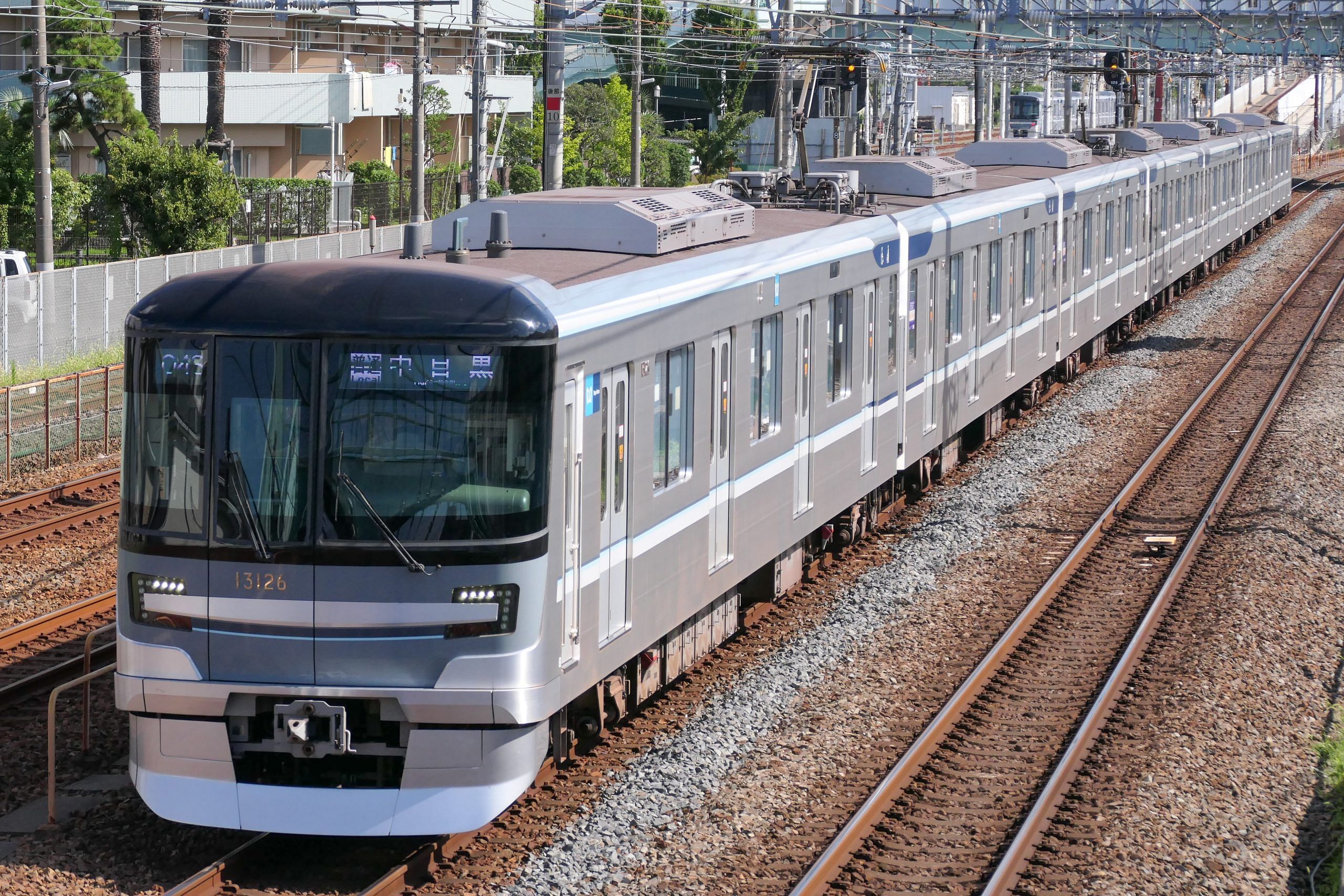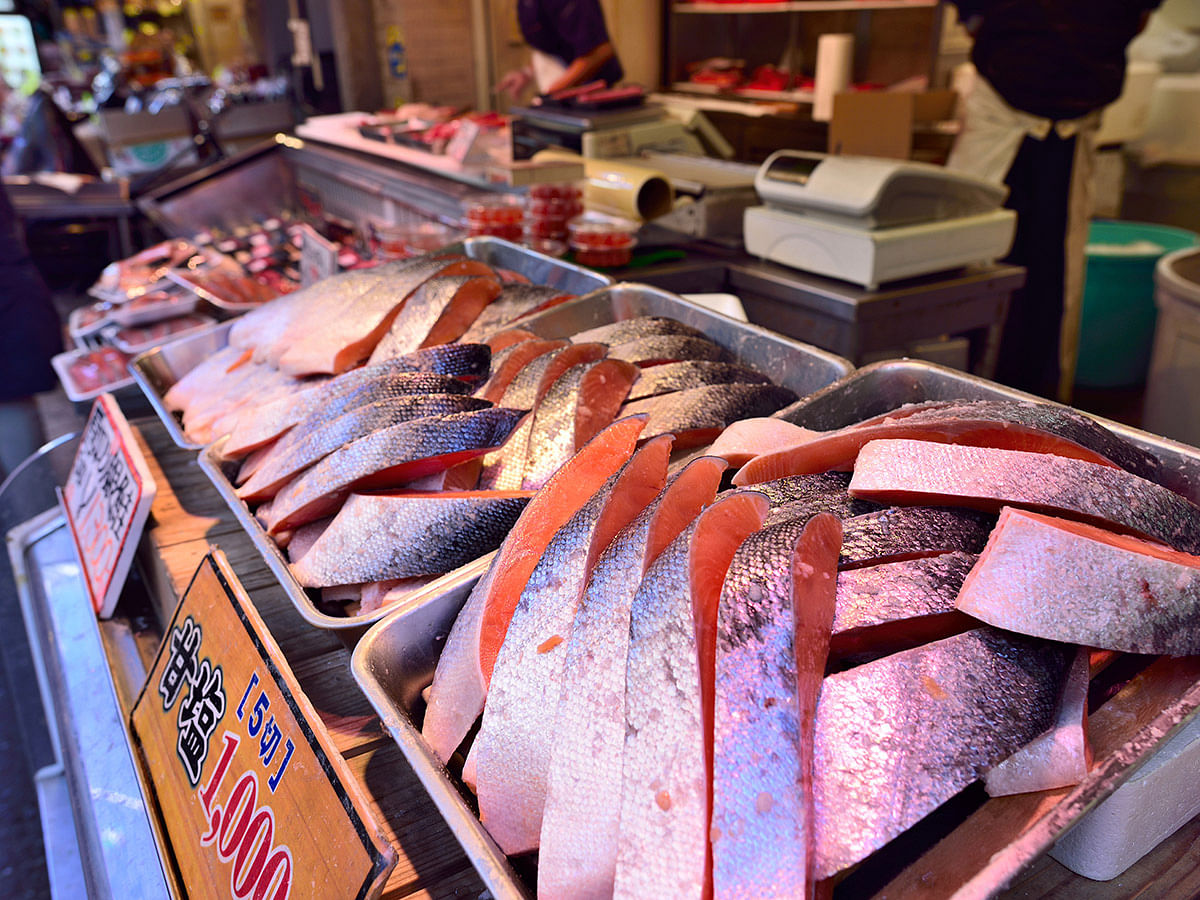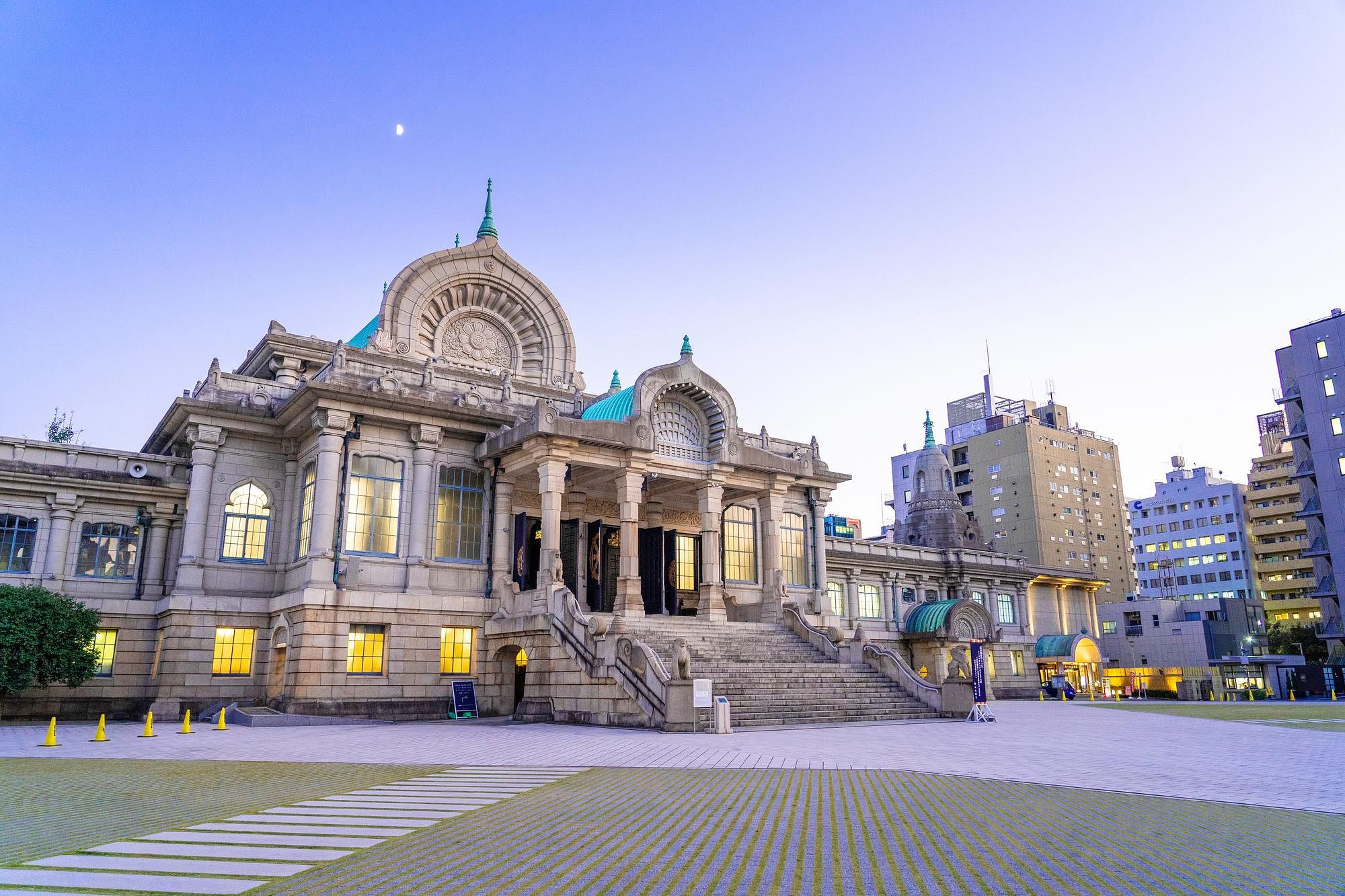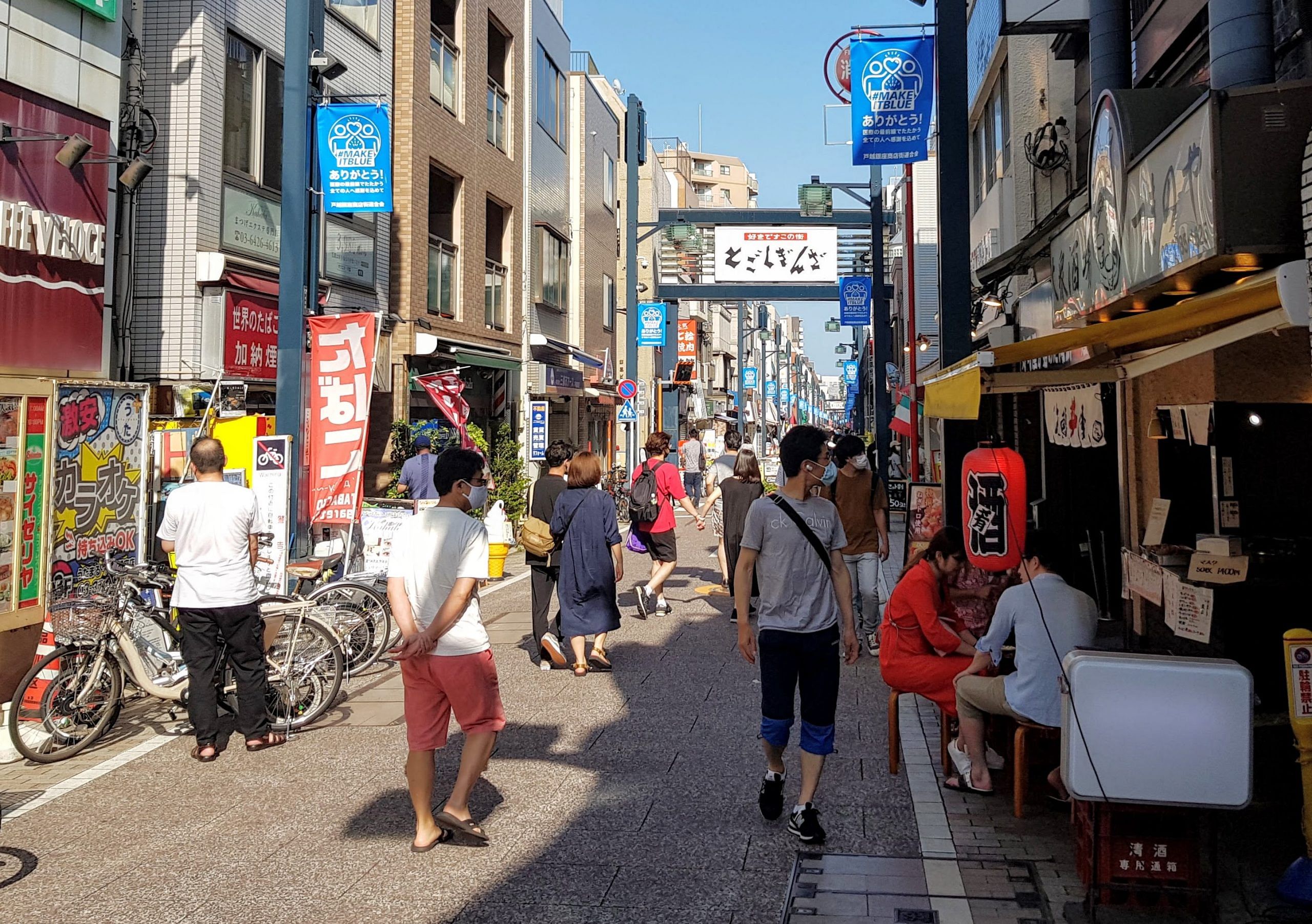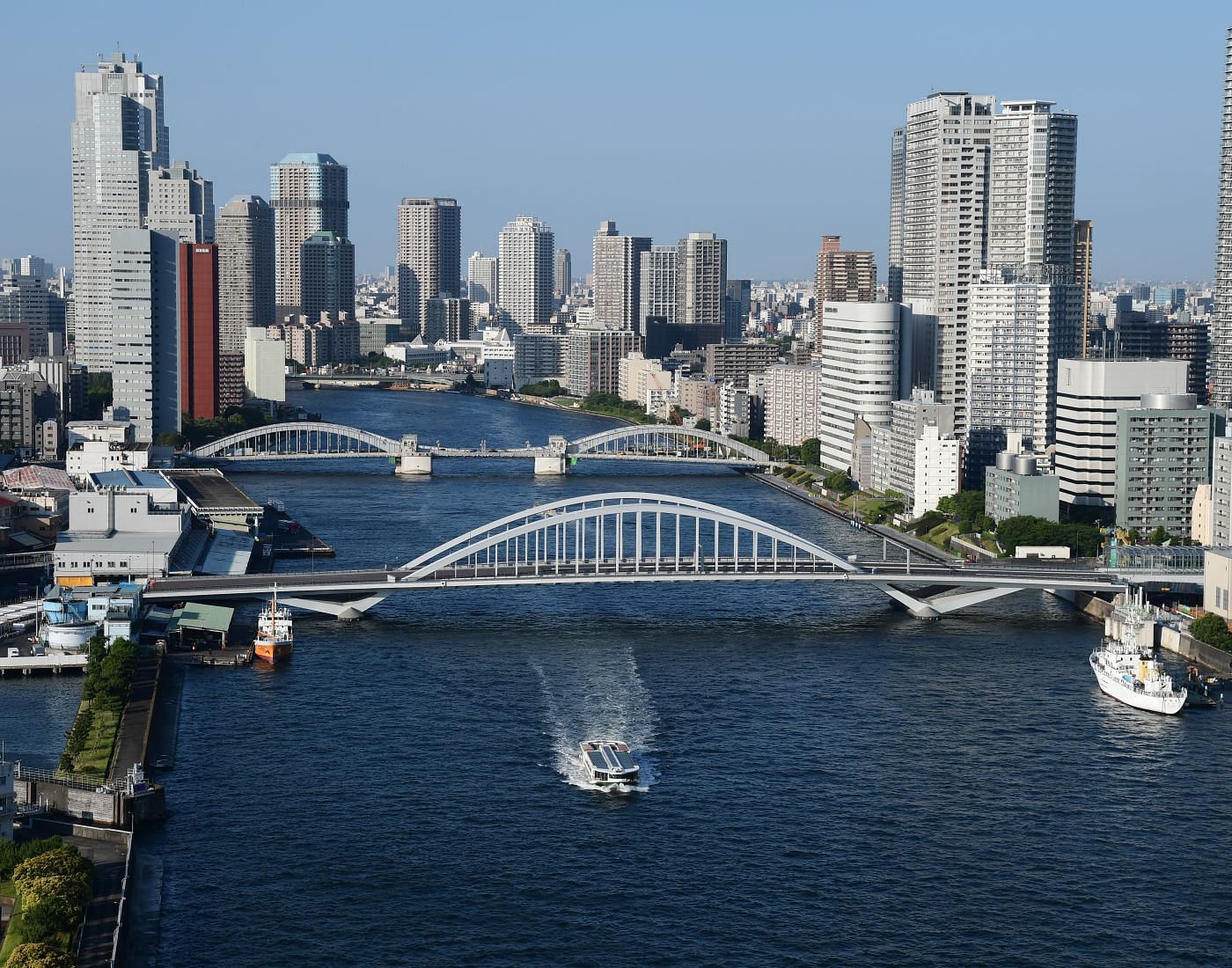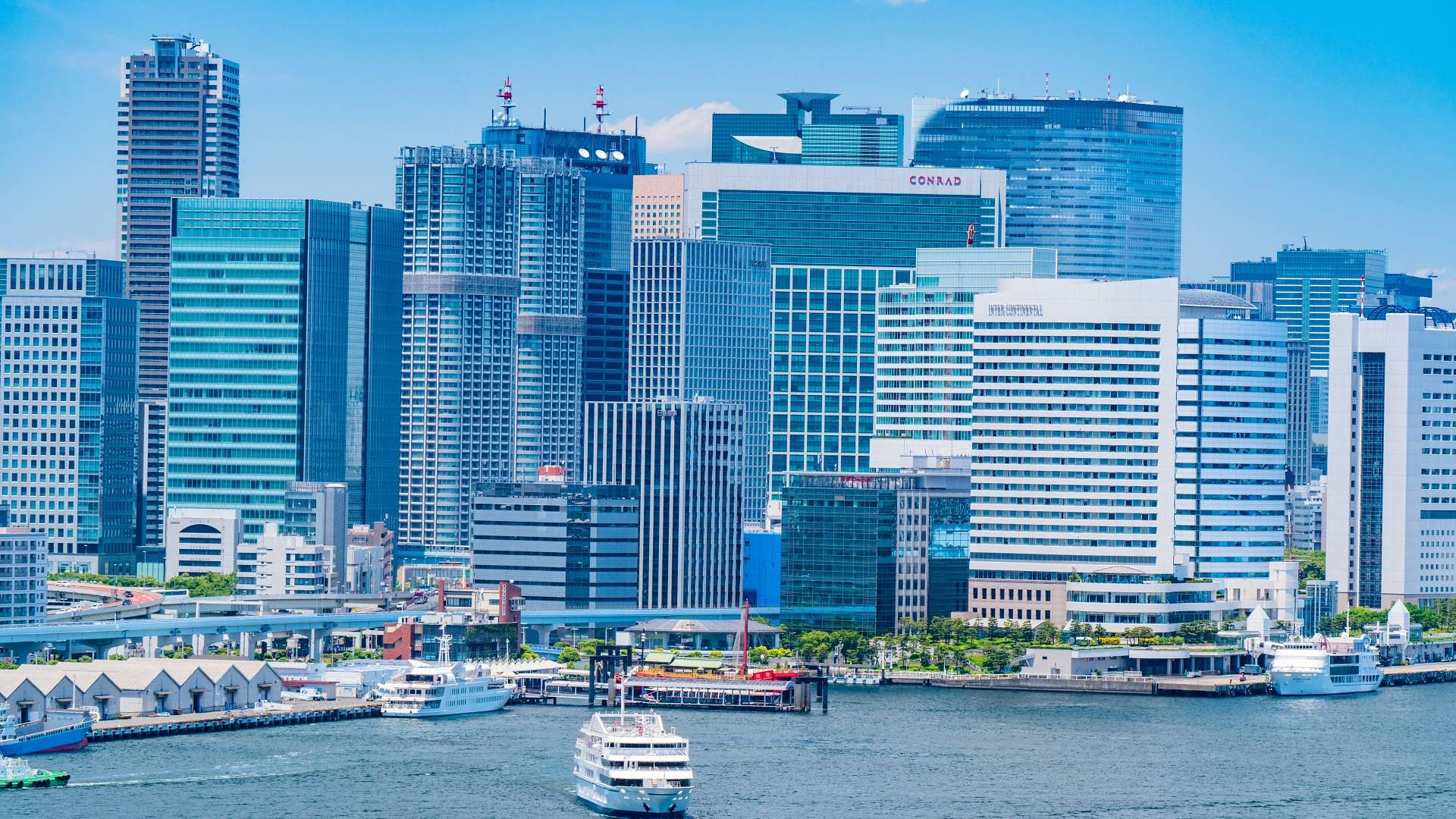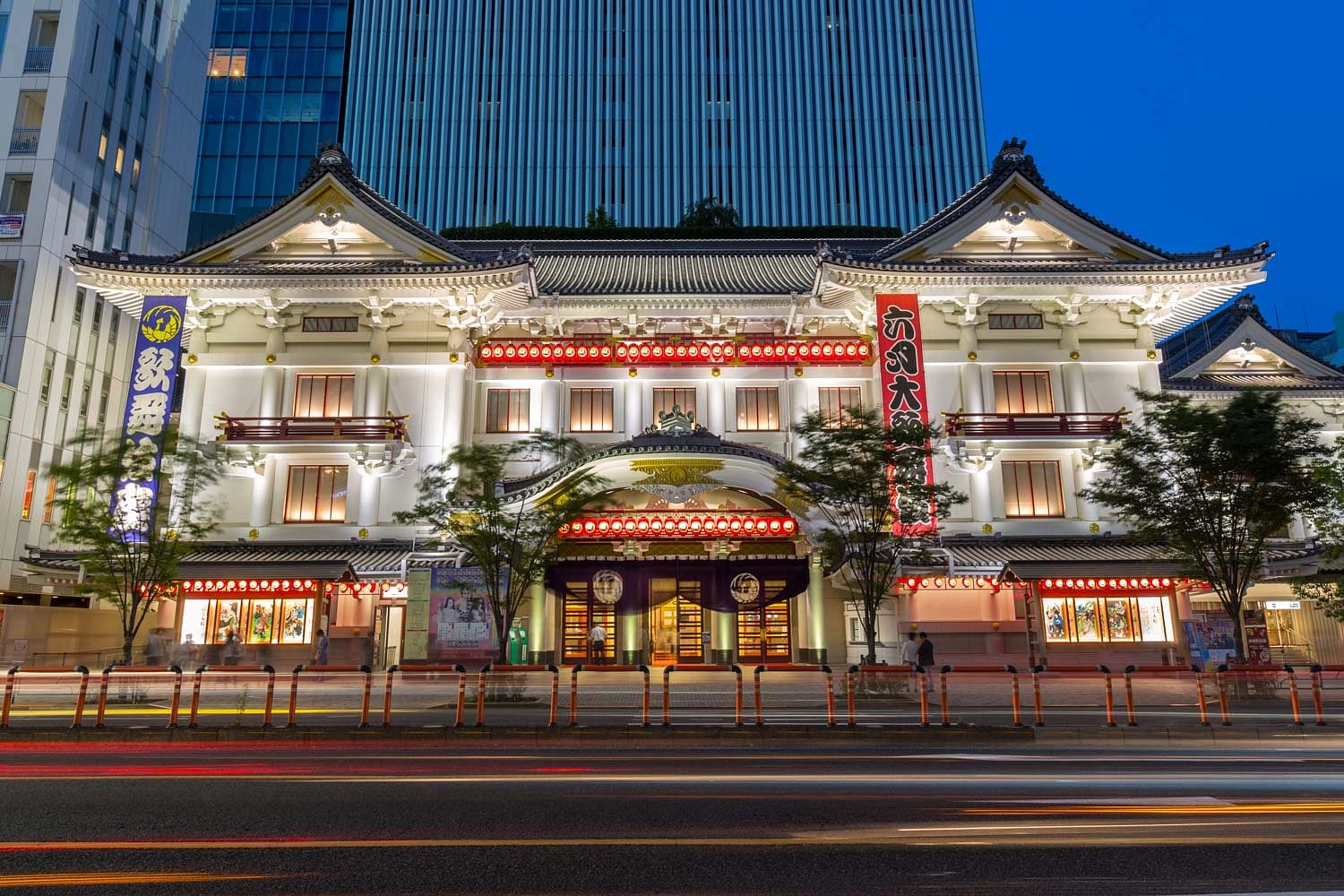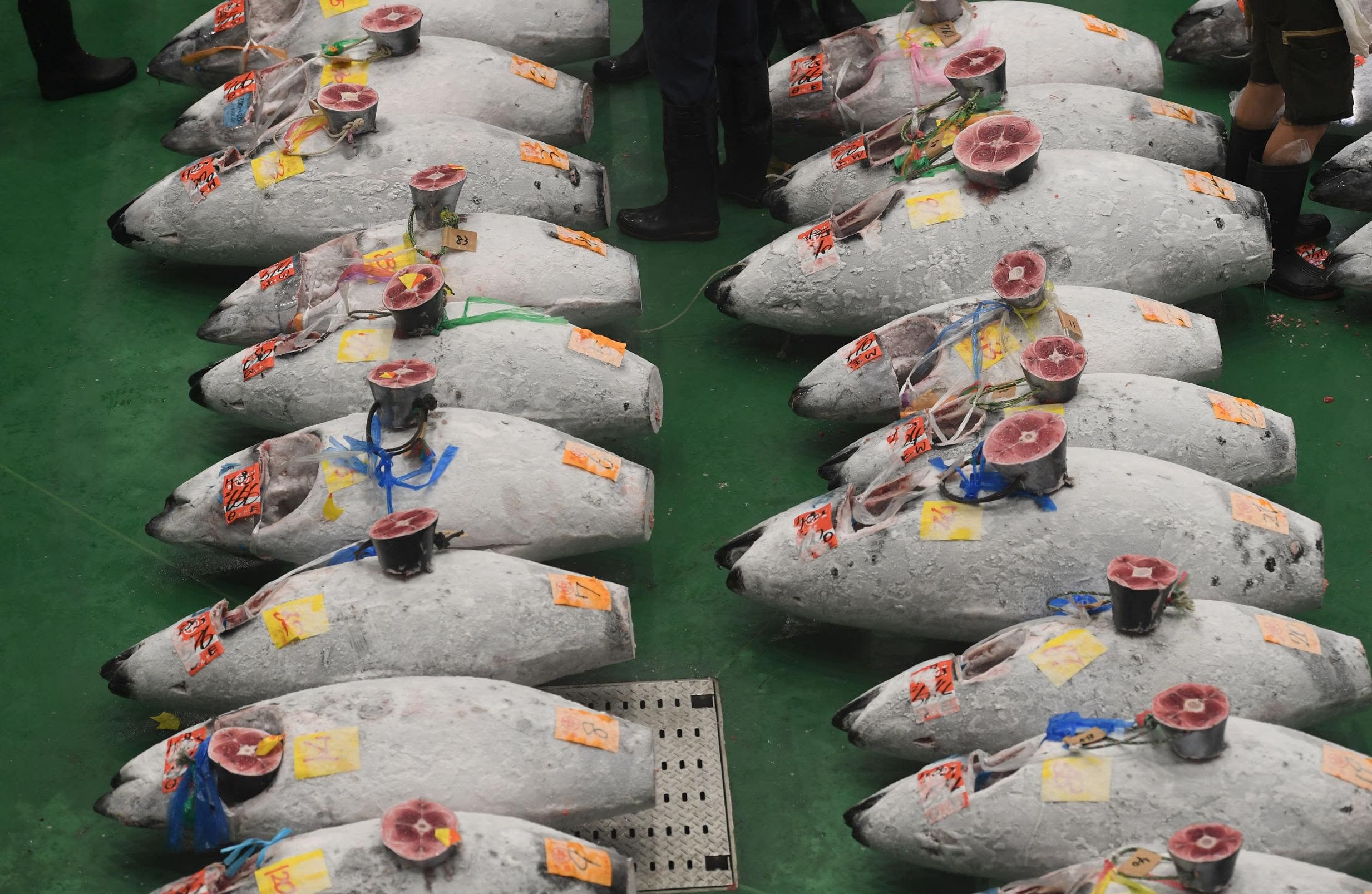If you’re planning things to do in Tokyo, Tsukiji Outer Market is an absolute must-visit spot! This busy marketplace is a food lover’s paradise right in the heart of the city. Even after the main fish market moved, the outer market remains a colorful destination for shopping in Tokyo and experiencing local culture.Imagine wandering through narrow streets with food stalls and shops selling everything from fresh seafood to traditional kitchen tools. It’s perfect for travelers looking to explore authentic Japanese cuisine. When booking your Japan Tour packages with us, include this incredible market on your itinerary.
Local vendors will tempt you with mouthwatering street food, incredible fresh sushi, and unique cooking supplies. Whether you’re a serious foodie or just someone who loves exploring new places, Tsukiji Outer Market offers an unforgettable experience that captures the real spirit of Tokyo. It is one of the best places to visit in Tokyo.
If you’re wondering how to experience this busy market or what to eat, keep reading for a simple guide on how to make the most of your visit to one of Tokyo’s famous fish markets.
Pro tip: Come hungry and ready to explore!
A Brief Look at Tsukiji Outer Market
The Tsukiji Outer Market is the lively retail section of the old Tsukiji Fish Market, which was once the largest and busiest seafood market in the world. While the wholesale fish auctions have moved to Toyosu, the outer market is still in its original location. Today, it’s a colorful hub where you can find fresh seafood, traditional Japanese ingredients, kitchen tools, and lots of delicious street food. Whether you’re a food enthusiast or just someone curious about Japanese culture, the market is worth a visit. And the best part? It’s open to everyone!
Where Is Tsukiji Outer Market?
If you’re wondering about the Tsukiji Outer Market location, it’s quite convenient to reach. It’s located in the Chuo district of Tokyo, near Ginza, one of the top shopping areas in Japan. The market is just a short walk from Tsukiji Station on the Tokyo Metro Hibiya Line, making it easy to get to from almost anywhere in the city.Suggested Read: Universal Studios Japan
Things to Do at Tsukiji Market
There are so many things to do at Tsukiji Market that you can easily spend half a day exploring, eating, and shopping. Here are some highlights:1. Feast on Fresh Sushi and Sashimi
No visit to the Tsukiji Outer Market is complete without tasting some of the freshest sushi and sashimi in Tokyo. Many small eateries and food stalls serve sushi that’s made from fish caught the same morning. Popular items include tuna, salmon, uni (sea urchin), and scallops. Sushi Dai and Daiwa Sushi are two well-known spots, but even the lesser-known places serve top-quality seafood.
2. Take a Tsukiji Market Food Tour
If you’re unsure where to start, joining a Tsukiji Market food tour can be a great idea. These tours often take you to the best stalls, where you can sample a variety of dishes like grilled eel, tamagoyaki (Japanese omelet), and freshly shucked oysters. A guided tour also gives you a chance to learn more about the market’s history and Japanese food culture.
3. Try Local Street Food
Street food is a big part of the experience at the Tsukiji Outer Market. As you wander through the narrow alleys, you’ll find vendors selling everything from juicy yakitori (grilled chicken skewers) to piping hot bowls of ramen. Don’t miss the grilled seafood skewers and matcha-flavored treats that are perfect for snacking as you explore.
4. Shop for Japanese Ingredients and Souvenirs
The market isn’t just about seafood; it’s also a fantastic place to shop for Japanese cooking ingredients. You’ll find stalls selling miso paste, dried bonito flakes, seaweed, and freshly ground wasabi. If you love cooking, this is the place to stock up on authentic Japanese ingredients. You can also buy traditional Japanese knives and ceramics, which make excellent souvenirs.
Suggested Read: Tokyo Disneyland
How to Visit Tsukiji Outer Market
Visiting the Tsukiji Outer Market is a must-do experience for anyone traveling to Tokyo, especially for food lovers and those curious about Japanese culture. Even though the wholesale fish market moved to Toyosu in 2018, the outer market remains colorful and continues to draw locals and tourists alike with its fresh seafood, traditional snacks, and busy atmosphere.1. Getting to Tsukiji Outer Market The Tsukiji Outer Market location is in the Chuo Ward of Tokyo, and it’s well-connected by public transportation, making it easily accessible from various parts of the city.
By Train:
Tokyo Metro Hibiya Line: Get off at Tsukiji Station (Exit 1), and the market is just a 5-minute walk away.
Toei Oedo Line: Get off at Tsukiji Shijo Station (Exit A1), and walk for about 5 minutes to reach the market.
By Bus:
You can also take a local bus that stops near the market area. Look for routes heading to the Tsukiji or Ginza districts.
By Taxi:
Taxis are a convenient option, especially if you’re traveling with a group or have a lot of luggage. Just tell the driver “Tsukiji Outer Market,” and they’ll take you directly to the entrance.
Suggested Read: Mount Fuji, Japan
2. Best Time to Visit
Understanding the Tsukiji Outer Market opening hours will help you plan your visit better and avoid missing out on the market’s colorful energy.
Opening Hours: Most shops and restaurants in Tokyo in the outer market are open from 5:00 AM to around 2:00 PM. However, the busiest and liveliest time to visit is between 7:00 AM and 11:00 AM when the market is full.
Closed Days: The market is typically closed on Sundays and national holidays, so plan accordingly.
Ideal Time to Visit:
Arrive early in the morning (around 7:00 AM) to experience the market at its liveliest.
If you want to avoid crowds, consider visiting just after the morning rush, around 10:00 AM.
3. Navigating the Market
The Tsukiji Outer Market is a sprawling maze of narrow alleys filled with seafood stalls, fresh produce, traditional Japanese snacks, and small eateries. Here are some tips on navigating the market:
Entrance Points: There are multiple entry points, but most visitors enter from the main street near Tsukiji Station.
Layout: The market is divided into different sections—seafood stalls, produce vendors, and food shops.
Language: While many vendors speak basic English, it’s helpful to learn a few Japanese phrases like “sumimasen” (excuse me) and “arigatou” (thank you).
4. What to Expect
Visiting Tokyo’s famous fish market can be an overwhelming but exciting experience. Here’s what you can expect:
Seafood Galore: The market is packed with stalls selling fresh seafood, including tuna, salmon, scallops, oysters, and even sea urchins.
Street Food: You’ll find an array of traditional Japanese snacks like grilled fish skewers, tamagoyaki (Japanese omelet), and onigiri (rice balls).
Knife Shops: Tsukiji is also known for its high-quality Japanese knives. Many shops offer handcrafted knives that are popular among chefs and cooking enthusiasts.
Souvenirs: In addition to food, you can buy souvenirs like chopsticks, tea sets, and traditional condiments.
Suggested Read: Akihabara Electric Town
A Tokyo Fish Market Guide: Tsukiji vs. Toyosu
Many visitors ask whether they should visit Tsukiji or Toyosu. While Toyosu is the new home of wholesale fish auctions and offers a modern experience, it lacks the charm and energy of Tsukiji. If you want to experience the traditional atmosphere of a Japanese market and enjoy fresh street food, the Tsukiji Outer Market is the better choice. A good Tokyo fish market guide will often recommend visiting both, but Tsukiji is ideal for those who love food and culture. More Than Just Fish
One of the reasons why the Tsukiji Outer Market remains popular is its variety. Sure, the seafood is the star of the show, but there’s so much more to discover. From freshly roasted coffee to handmade Japanese sweets, the market caters to all tastes.
If you’re a fan of Japanese sweets, make sure to try mochi and dorayaki. You’ll also find specialty tea shops where you can sample and buy high-quality green tea.
Suggested Read: Nightlife in Tokyo
Nearby Attractions to Visit After Tsukiji Outer Market
After exploring the busy Tsukiji Outer Market, you might want to take some time to visit the nearby attractions that offer a blend of Tokyo’s rich history, beautiful landscapes, and modern beauty. The market is full of exciting things to do in Japan, making it a must-visit for anyone traveling to Tokyo. Located in the Chuo district, Tsukiji is well-connected to some of Tokyo’s most iconic spots, making it easy to continue your adventure after your food-filled morning. Here are some must-visit places near the market:1. Hamarikyu Gardens (10-minute walk)
One of the most beautiful traditional Japanese gardens in Tokyo, Hamarikyu Gardens is a peaceful oasis just a short walk from the Tsukiji Outer Market. The garden was once a feudal lord’s private retreat during the Edo period and features carefully landscaped ponds, greenery, and walking trails. One of the highlights of Hamarikyu Gardens is the large tidal pond, which is connected to Tokyo Bay and changes water levels with the tides. In the middle of the pond, you’ll find a charming teahouse where you can enjoy a cup of matcha (green tea) and traditional Japanese sweets while taking in the surroundings.
Why Visit:
Escape the hustle and bustle of the market.
Experience a traditional Japanese garden with a rich history.
Enjoy a peaceful tea ceremony at the Nakajima-no-Ochaya teahouse.
2. Tsukiji Hongan-ji Temple (5-minute walk)
Just around the corner from the Tsukiji Outer Market is the impressive Tsukiji Hongan-ji Temple. Unlike traditional Japanese temples, this Buddhist temple stands out for its unique architectural design, which blends elements of South Asian, Islamic, and European styles. The exterior resembles a South Asian temple, while the interior features stained glass windows and a pipe organ, giving it a distinctly Western feel. The temple is a peaceful spot where you can take a break from the crowded streets and learn about Buddhist practices in Japan. Visitors are welcome to explore the temple grounds and join in on any ongoing services.
Why Visit:
Admire the unique fusion of architectural styles.
Experience a quiet, spiritual atmosphere.
Learn about Japanese Buddhism.
If you’re in the mood for some retail therapy after exploring the market, head to Ginza, Tokyo’s upscale shopping district. Ginza is home to luxury boutiques, high-end department stores, and trendy cafes, making it a shopper’s paradise. Even if you’re not planning to shop, Ginza is worth a visit for its sleek architecture and lively atmosphere. During weekends, the main street in Ginza is closed to traffic, turning it into a pedestrian-friendly area where you can stroll freely. Don’t miss iconic stores like Mitsukoshi, Wako, and Uniqlo’s flagship store, which spans multiple floors.
Why Visit:
Explore one of Tokyo’s most glamorous shopping districts.
Discover unique Japanese and international brands.
Enjoy gourmet dining and specialty coffee shops.
4. Kachidoki Bridge and Tokyo Bay Area (15-minute walk)
For those interested in Tokyo’s modern architecture and waterfront views, a walk to Kachidoki Bridge is a great option. The bridge spans the Sumida River and offers beautiful views of the Tokyo Bay area, especially at sunset. It’s also a great spot for photography, with the skyline of the Shiodome district in the background. From here, you can continue your walk along the waterfront, where you’ll find parks, promenades, and boat tours that offer a different perspective of Tokyo.
Why Visit:
Enjoy scenic views of Tokyo Bay and the Sumida River.
Capture stunning photos of the city’s skyline.
Take a relaxing stroll along the waterfront.
Suggested Read: Tokyo Tower
5. Shiodome City Center (15-minute walk)
Shiodome is a modern business and entertainment district located near the Tsukiji Outer Market. The area is known for its sleek skyscrapers, futuristic design, and a variety of dining and shopping options. One of the highlights of Shiodome is the Caretta Shiodome complex, which houses a shopping mall, restaurants, and an observation deck with panoramic views of Tokyo. If you’re visiting during the winter months, don’t miss the stunning illumination displays in the Shiodome area, which attract visitors from all over the city.
Why Visit:
Experience Tokyo’s modern architecture and skyline views.
Dine at high-end restaurants with city views.
Explore Caretta Shiodome and its attractions.
6. Kabuki-za Theater (20-minute walk)
Located in the nearby Ginza district, the Kabuki-za Theater is the premier venue for Kabuki performances in Tokyo. Kabuki is a traditional Japanese form of theater known for its elaborate costumes, dramatic makeup, and stylized performances. Even if you don’t have time to watch a full show, you can visit the theater’s lobby, which features exhibits on Kabuki history and culture. For those interested in experiencing Kabuki, the theater offers single-act tickets that allow you to catch a portion of a performance without committing to a full show.
Why Visit:
Experience a traditional Japanese performing art.
Admire the beautifully designed theater.
Learn about the history and cultural significance of Kabuki.
7. Toyosu Fish Market (10-minute train ride)
If you’re interested in seeing the wholesale fish auctions that used to take place at Tsukiji, you can visit the Toyosu Fish Market, the new home of the wholesale section. Toyosu is a modern, high-tech market with observation decks where visitors can watch the famous tuna auctions from a distance. While it lacks the charm of the Tsukiji Outer Market, Toyosu offers a more organized and spacious experience, making it a great complement to your Tsukiji visit.
Why Visit:
Witness the iconic tuna auctions.
Explore a modern seafood market.
Compare the old and new Tokyo fish market experiences.
Suggested Read: Hotels in Tokyo
The Tsukiji Outer Market is more than just a place to buy fish; it’s an experience that offers a taste of Tokyo’s colorful food culture. Whether you’re sampling fresh sushi, browsing for Japanese ingredients, or simply soaking in the lively atmosphere, the market has something for everyone.With its convenient Tsukiji Outer Market location and long-standing reputation as one of Tokyo’s famous fish markets, it remains a top destination for both locals and tourists. So, next time you’re in Tokyo, make sure to add Tsukiji to your itinerary—you won’t regret it!




